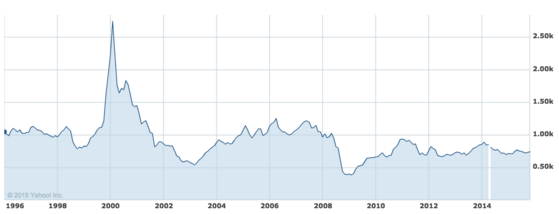London Stock Exchange (LSE) listed companies are not equal in terms of regulation and corporate governance rules. The Alternative Investment Market (AIM) is the least regulated and has performed poorly. Premium listed stocks on the Main Market follow the highest standards and have generated solid returns.
Disaster stories like Globo, Quindell and Blinkx show the scope for corporate wrongdoing on the Alternative Investment Market (AIM). A host of Chinese stocks, such as Naibu and Camkids, have also been dismal failures.
A challenge for investors is that many of these companies appeared to have strong fundamentals. AIM is the least regulated market in the UK and so will always be the destination of choice for fraudulent companies.
AIM has also attracted international companies that are harder for UK investors to follow. The sector exposure of companies on AIM is another factor increasing the risk with an emphasis on areas such as resource exploration.
Looking at the long-term performance of the AIM-All Share and the index is below the level it started at in early 1996. The initial value of the AIM-All Share was 1,000 but today, nearly 20 years on, it stands at around 750.
The AIM-All Share index has been relatively volatile and AIM listed companies also tend not to offer a dividend. In terms of individual stocks and there has been a significant dispersion of returns i.e. a few big winners and many losers.
AIM All-Share index since 1996: going nowhere

Source: Yahoo Finance
There are quality companies on AIM with flooring company James Halstead, the budget airline Dart Group and drinks group Fevertree good examples. However, these tend to be the exceptions rather than the norm.
The key question investors need to ask of an AIM company is why has it chosen to avoid listing on the Main Market. A follow-up issue is to find out the corporate governance standards an AIM company has elected to follow.
Investors could have easily have avoided disaster stories like Quindell by avoiding AIM stocks. Quindell tried to move from AIM to the Main Market but was rejected, which highlights the quality threshold for Main Market stocks.
The Main Market versus AIM
Turning to the LSE’s Main Market and this includes the companies in the All-Share Index. The All-Share has increased from 1,800 in early 1996 to…






